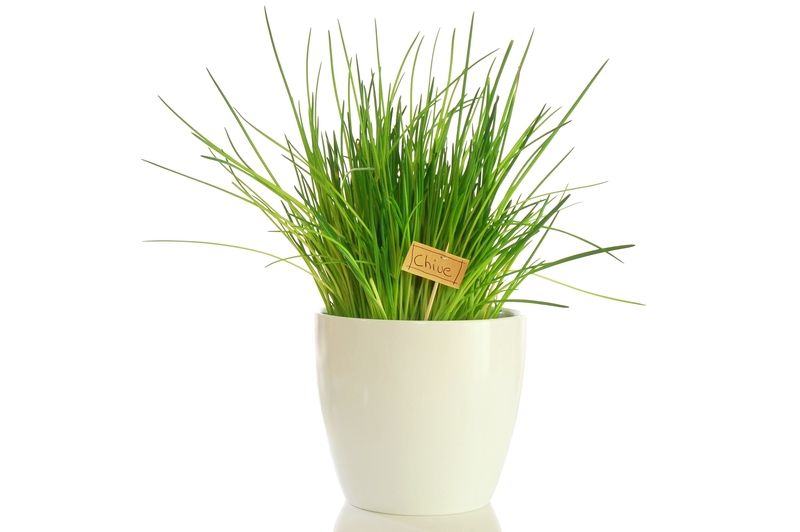Indispensable Gardening Tools for Nature Advocates
Posted on 12/06/2025
Introduction: The Importance of the Right Gardening Tools for Nature Advocates
Gardening is more than a hobby--it's a commitment to nurturing the environment and supporting biodiversity. For nature advocates, the activity goes beyond aesthetics, focusing on ecosystems, pollinator protection, and sustainable practices. But to accomplish their goals, nature lovers need the best gardening tools tailored for eco-friendly and responsible gardening. This comprehensive guide explores the indispensable gardening tools every nature advocate should have in their collection and highlights how these tools help preserve our natural world.

Why Gardeners Should Use Indispensable Tools Designed for Nature Advocates
The term nature advocate encapsulates individuals who promote ecological balance, wildlife conservation, and low-impact horticulture. The right set of gardening essentials helps these advocates work efficiently, safely, and in harmony with nature. Choosing quality tools minimizes physical strain, increases productivity, and reduces the risk of damaging delicate flora and fauna.
- Conservation: Tools designed with eco-friendly materials minimize environmental harm.
- Sustainability: Durable implements lessen waste and support a long-term gardening ethic.
- Precision: Specialized equipment allows for gentler interventions, which is crucial for native plants and wildlife habitats.
Top 10 Must-Have Gardening Tools for Nature Advocates
Whether you're maintaining a native-plant sanctuary or fostering pollinator-friendly spaces, these indispensable gardening tools will help you achieve your eco-conscious goals.
1. Stainless Steel Garden Trowel
Trowels are the backbone of any gardener's toolkit. For the nature advocate gardener, a trowel with a sturdy stainless-steel blade is ideal for eco-conscious reasons: it resists rust, lasts for years, and is easy to clean (preventing the spread of disease). Use it to dig, transplant seedlings, and remove invasive weeds with minimal soil disturbance.
- Why It's Essential: Reduces the risk of spreading soil pathogens while making precision digging easy for native or endangered plants.
- Eco Tip: Select trowels with sustainably harvested wooden handles for an added earth-friendly edge.
2. Ergonomic Garden Hoe
A garden hoe is necessary for cultivating soil, controlling weeds, and preparing planting beds. For nature-friendly gardening, choose an ergonomic design to minimize repetitive strain injuries and opt for durable materials that reduce replacement frequency.
- Best Use: Gently disturb weed seedlings, aerate surface layers, and keep soil structure intact to protect underground ecosystems.
- Nature Advocacy: Use minimal tillage to conserve soil microbes and earthworms.
3. Pruning Shears (Secateurs)
High-quality pruners are indispensable for maintaining plant health and managing growth. For eco-minded individuals, bypass pruners are preferable as they make clean cuts, which heal quickly, reducing disease entry points.
- Sustainable Advantage: Sharp pruners mean less crushing of plant tissue and reduced plant stress.
- Tip for Nature Advocates: Always sterilize blades between plants to prevent the transfer of diseases, particularly in native or rare species.
4. Composting Bin
While technically not handheld, a composting bin is an essential tool for reducing garden waste and building healthy soil without chemical fertilizers. By composting, you recycle nutrients and reduce landfill contributions.
- Key Features: Choose bins made from recycled plastic or responsibly sourced wood; consider models that are easy to turn and aerate.
- Why Nature Advocates Love It: Home composting closes the nutrient loop and builds a sustainable garden from within.
5. Rainwater Collection Barrel
Water conservation is crucial for sustainable gardening. Rain barrels offer nature lovers a way to capture and store rainwater, reducing reliance on treated water.
- Environmental Perks: Lower water bills, reduced stormwater runoff, and less stress on municipal systems.
- Nature Advocacy Application: Use collected water for irrigation, especially in pollinator plots and native landscapes sensitive to chemicals in tap water.
6. Long-Handled Fork or Broadfork
For amending and aerating beds without heavy tilling, a broadfork is invaluable. This tool loosens soil while protecting the delicate structure and organisms living below the surface--essential for anyone practicing permaculture or regenerative gardening.
- Soil-Friendly: Allows roots, water, and nutrients to penetrate without destroying worm tunnels or microbe colonies.
7. Multi-Function Weeder
Controlling invasive species is a primary concern for nature advocacy gardeners. A multi-function weeder or dandelion digger helps uproot unwanted plants with pinpoint accuracy, reducing collateral damage to desired species.
- Eco-Tip: Avoid herbicides and use manual weeding as a chemical-free method for garden maintenance.
8. Native Plant Plug Dibber
For those specializing in native plant restoration or pollinator habitat creation, a dibber is the go-to tool for planting plugs efficiently and precisely.
- Why It Matters: Minimizes root disturbance and encourages quick establishment of indigenous flora.
9. Wildlife-Friendly Mulching Tools
Applying mulch enriches soil, reduces water use, and suppresses weeds, but it's best handled with dedicated mulching forks or mulch scoops. These tools make spreading organic matter fast, uniform, and gentle on living organisms.
- Pro Tip: Always check for wildlife, such as ground bees or toads, before mulching!
10. Protective Gloves (Eco-Friendly Materials)
Your most important tool is your own hands. Durable, comfortable gloves made from sustainable materials (like bamboo fibers or recycled plastics) protect you while maintaining an eco-friendly gardening approach.
- Choose Carefully: Synthetic or leather alternatives with green certifications help minimize your environmental footprint.
Specialty Tools for Biodiversity and Conservation Gardening
In addition to foundational implements, some specialized tools serve the needs of nature conservationists and biodiversity champions. Consider investing in:
- Seed Spreaders: For gentle, uniform broadcasting of wildflower or native grass seeds.
- Pollinator Habitat Tools: Tiny brushes and tweezers for hand-pollination or managing solitary bee habitats.
- Soil Testers: To check nutrient levels and pH, supporting organic and site-specific amendments that avoid chemical run-off.
- Wildlife Shelters: Birdhouse or bat box mounting kits to expand urban and suburban habitat value.
How to Choose Eco-Friendly and Sustainable Gardening Gear
As a nature advocate gardener, prioritize eco-friendly materials and responsible brands. Here are essential factors to consider:
- Material Source: Recycled alloys, FSC-certified hardwood, and natural fibers reduce ecological impact.
- Longevity and Repairability: Invest in high-quality pieces you can sharpen or repair, rather than throw away.
- Packaging: Opt for minimal or recyclable packaging and avoid single-use plastics.
- Local Manufacturing: Whenever possible, choose locally made tools to cut carbon emissions from shipping.
Top Brands Supporting Green Gardening Initiatives
Several reputable manufacturers prioritize environmental responsibility in their gardening tool production:
- Burgon & Ball: Renowned for long-lasting, sustainably produced hand tools.
- Fiskars: Offers recycling on select tool lines and designs with ergonomics and durability in mind.
- Radius Garden: Specializes in ergonomic, recycled-material tools promoting ease of use and sustainability.
- DeWit: Family-owned with forged steel tools and FSC-certified handles, built to last generations.
Maintenance and Care: Extending the Life of Your Tools
To minimize your footprint and maximize your impact, proper maintenance of your gardening instruments is crucial. Follow these guidelines:
- Clean after each use: This prevents disease transmission and rust.
- Sharpen blades regularly: Safer, more efficient cuts aid plant recovery and reduce gardener fatigue.
- Oil wooden handles and metal parts using eco-friendly products: Linseed oil or beeswax preserves materials without synthetic chemicals.
- Store tools in a dry, sheltered space: Keep implements organized and protected from the elements.
Embracing Community and Education with Your Gardening Tools
Nature advocacy gardening thrives in community. Share your tools, knowledge, and passion with like-minded individuals or local organizations. Community tool libraries, for example, reduce resource duplication and foster environmental stewardship. Show others how to use eco-friendly gardening tools, and educate about their benefits for biodiversity, sustainability, and personal well-being.
Conclusion: The Path Forward for Nature Advocates
The right gardening tools for nature advocates are more than a matter of convenience--they are instruments for ecological change. With thoughtful choices, you can work in harmony with nature, protect endangered species, minimize waste, and create landscapes that welcome both people and biodiversity. By investing in indispensable gardening tools, you join a global movement dedicated to preserving the wonders of the natural world for generations to come.

Frequently Asked Questions (FAQs)
What tools do I need to start an eco-friendly garden as a beginner?
Start with the basics: a stainless steel trowel, ergonomic hoe, bypass pruners, a composting bin, and wildlife-friendly gloves. As your skills grow, you can expand your kit with specialty and advanced tools.
How can I make sure my gardening tools are sustainable?
Choose items made from recycled or responsibly sourced materials, buy from ethical brands, and maintain your tools to extend their lifespan. Consider buying vintage or second-hand equipment as well.
What's the best way to support local biodiversity while gardening?
Use your tools to plant native species, reduce chemical inputs, manually weed invasives, and build wildlife habitats. Sharing tools and knowledge with community members amplifies your positive impact.
Start Gardening for Nature Today!
By equipping yourself with these indispensable gardening tools for nature advocates, you'll be ready to create green spaces that nourish the earth, support wildlife, and inspire others to adopt eco-friendly habits. Let your garden become a testament to a better, sustainable future for all!



